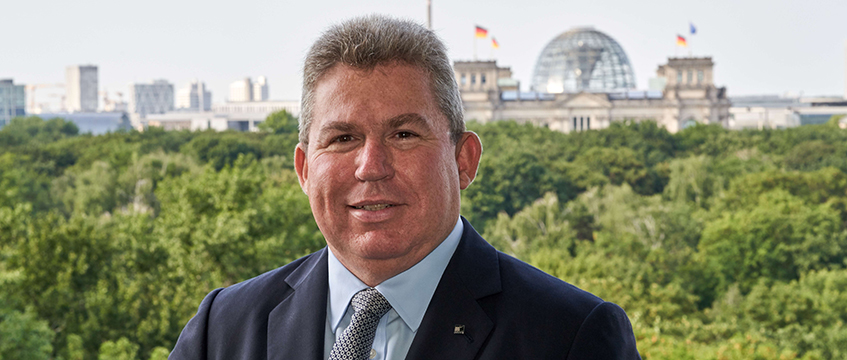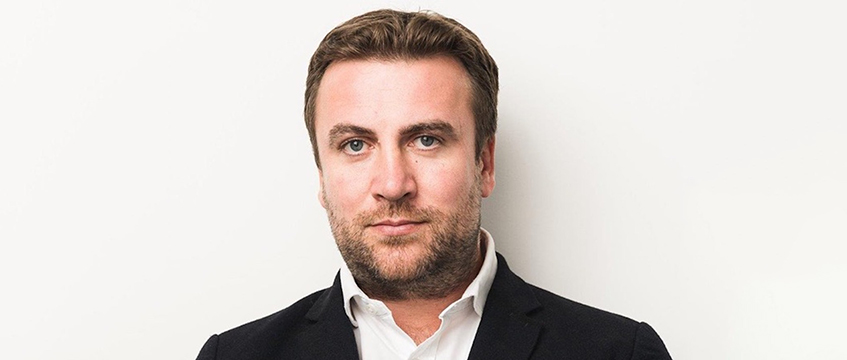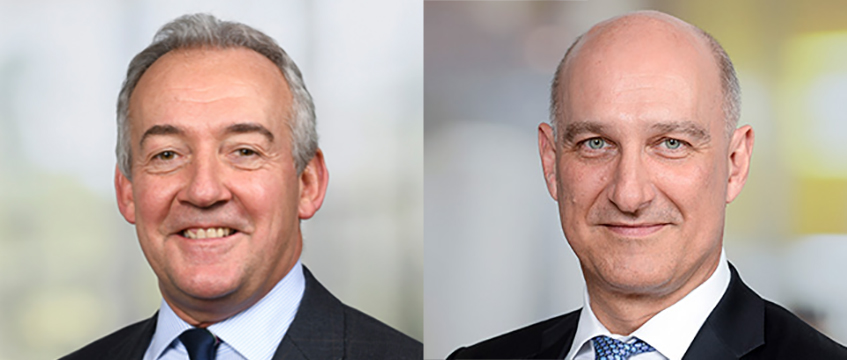The EG Interview: Sirius Real Estate’s Andrew Coombs on ‘fear and consolidation’
Expect the unexpected. This, says Andrew Coombs, has been his biggest lesson as a chief executive leading his company through the Covid-19 crisis.
In fairness, Coombs’ time in the army after he left school had already drilled that mindset home. But the events of the past year have shown him that such an approach is just as valuable in his role running German business park investor Sirius Real Estate.
A year ago, Coombs sat at lunch with a senior executive in one of the big accountancy firms, discussing the emerging coronavirus outbreak and whether it was something for the real estate industry to worry about.
Expect the unexpected. This, says Andrew Coombs, has been his biggest lesson as a chief executive leading his company through the Covid-19 crisis.
In fairness, Coombs’ time in the army after he left school had already drilled that mindset home. But the events of the past year have shown him that such an approach is just as valuable in his role running German business park investor Sirius Real Estate.
A year ago, Coombs sat at lunch with a senior executive in one of the big accountancy firms, discussing the emerging coronavirus outbreak and whether it was something for the real estate industry to worry about.
“He joked, ‘at this rate they might even have to cancel MIPIM’,” Coombs recalls. “I walked away from that meeting after a couple of glasses of wine, and it got me thinking. I said [to colleagues]: ‘guys, what would we do if…’ and people started to laugh. But we went through more meetings, got out the business continuity plans, and by the time the end of March came, we weren’t going ‘it’ll never happen’. We were going ‘we’ve got our heads around this’.”
That willingness to learn quickly and adapt strategies has worked in the favour of FTSE 250 company Sirius, which has boasted healthy rent collection ratios and is still investing in new assets. For Coombs, it is validation of a business he has been building for a decade now – and he wants to remain a step ahead.
New year, new deals
Coombs joined Sirius in 2010 and ran its Sirius Facilities division before becoming group chief executive in 2014. The company then moved from the junior markets of London’s AIM and Johannesburg’s AltX to both exchange’s main markets in 2017, with a market cap of just under €500m.
“We sit here today in the Covid crisis, three years later, with a market cap of €1.1bn,” says Coombs.
Since 2017, the company has delivered an average return for shareholders of roughly 16%, which Coombs says is split between 75% from capital growth and 25% from distribution of income.
Coombs began 2021 with the kind of new year’s resolution one would expect from a seasoned real estate dealmaker – start as you mean to go on and get spending. The team would be “very disappointed” not to have found “at least €100m” of transactions before March – including deals struck from its own balance sheet and money that it put to work as part of a joint venture with AXA IM Alts.
The company hit the ground running. As of the end of January it has announced the closure of three acquisitions valued at a combined €26m – two previously announced in Hamburg for €9.1m and Nuremberg for €13.7m, and a new acquisition for a €3.2m site next to an existing investment in Mannheim.
The company has also bought the Sigma Technopark site in Augsburg from Corestate for €80m, alongside AXA in the pair’s Titanium joint venture.
“This is not a model where we sit and wait for the market to be on our side,” Coombs says. “We are very much about doing something to improve the income and lifting the values off the back of that.
“We believe that we should be starting with the tenant and the market, and the balance sheet becomes the consequence. What we see a lot of in property is people fixated with the balance sheet and often tending to overlook some of the other things that we use to drive the balance sheet.”
Psychological shifts
Coombs is eyeing opportunities across Germany’s seven largest cities and their diverse industries, ranging from Munich’s automotive sector to telecoms in Cologne.
“Once you understand the tenant market, you can understand what is cheap and what is expensive in real terms where a property’s concerned,” he adds.
“Operationally, what we’re interested in is how we build critical mass in an area, because critical mass increases your efficiency. If you’re in a market where you know there’s good demand for your product, you know that you can fill your building with income, your next question is, can you then own several buildings in that area to be able to reduce your operational costs of running those buildings?”
The portfolio currently comprises around a third offices and a third storage, with about 22% production properties.
The company has invested heavily in tech to allow it to identify and market to new tenants. “Ninety percent of leads are coming without any involvement of commercial agents – so we’re disintermediating,” Coombs says.
Twelve marketing specialists have a budget of around €2m a year and are tasked with finding 1,000 new leads a month through search engine optimisation, pay-per-click advertising, a proprietary marketing database and other methods.
“None of that would be unusual in a lot of industries, but in property, it’s pretty unusual,” Coombs says. “It means we’re in control, and we have direct line of sight into the market. When Covid was approaching, we could see what was happening in the way people were asking questions online. And once it got here, we could understand people’s psychological shift.”
That psychological shift, Coombs adds, saw occupiers switch from thinking about growth aspirations in their business to “fear and consolidation”, and their real estate wants and needs changed in tandem.
“It went from ‘Are there enough meeting rooms? Can I expand my space? What happens if I need more car parking?’ to ‘I don’t want a building with more than two floors. It needs to have three stairwells. Do the windows open? Can I switch the air conditioning off in the room I’m in?’,” Coombs says.
“It became completely defensive, which is why we were able to alter our offering and the way we market – no longer playing to people’s aspirations, but instead comforting them about their fears and explaining the architecture of our buildings and why it was safer.”
Stay close
A focus on occupiers first, Coombs adds, stood the company in good stead during the unexpected events of the past year.
Sirius breaks the 5,000 or so tenants of its business parks down into three categories. The first is about 50 big, internationally known corporate names such as Daimler, Mercedes and Honeywell, accounting for roughly 44% of the company’s revenues.
Next come what the company calls its “smartspace” tenants, which are billed a fixed cost at the start of each month for an office, industrial space or self-storage site – these represent about half of the customer base by number but less than 10% of revenues.
Finally, there are the Mittelstand companies, Germany’s small and medium-sized businesses. And it is this final segment of Sirius’s customer base that Coombs and colleagues leapt into action to support during the Covid crisis.
It was leading these people hand-in-hand that enabled us to collect 97.3% of all the revenues that we invoiced in that period
“They have started small with us and they’ve grown over the last three to five years and they’re very good at providing the service they provide to their customers. But lots of them were not even managing people in the last financial crisis. Some of them were not even working. These are the people who don’t know how to react.”
Sirius took about 80 people – a third of its workforce – and turned them into what Coombs calls “a Covid taskforce”. Led by in-house debt collectors, the team contacted customers on a weekly basis to discuss the challenges they faced and the options open to them regarding identifying and applying for subsidies, or furloughing staff.
“It was leading these people hand-in-hand that enabled us to collect 97.3% of all the revenues that we invoiced in that period,” Coombs says (that figure has risen since EG spoke with Coombs in late December).
“The fact that we are customer-centric, the fact that we do talk to our customers, meant that we were proactively able to position the landlord at the beginning of the conversation, rather than be told in six months’ time, ‘there’s no money, if you want to kick us out, we’ll go out of business’.”
Are there lessons from the initiative that will stay with Sirius beyond the pandemic?
“We’ve learnt an awful lot, particularly in that middle segment of the Mittelstand, about people wanting to be 100% fair to their workforce and not really understanding from an HR perspective the kind of fair and decent processes they can use to make necessary commercial decisions,” Coombs says.
“It’s those kinds of things that we will seek to build into not just our debt collection processes, but also our renewal processes and the processes when we see customers expand rapidly and they ask for new space.”
To send feedback, e-mail tim.burke@egi.co.uk or tweet @_tim_burke or @estatesgazette











